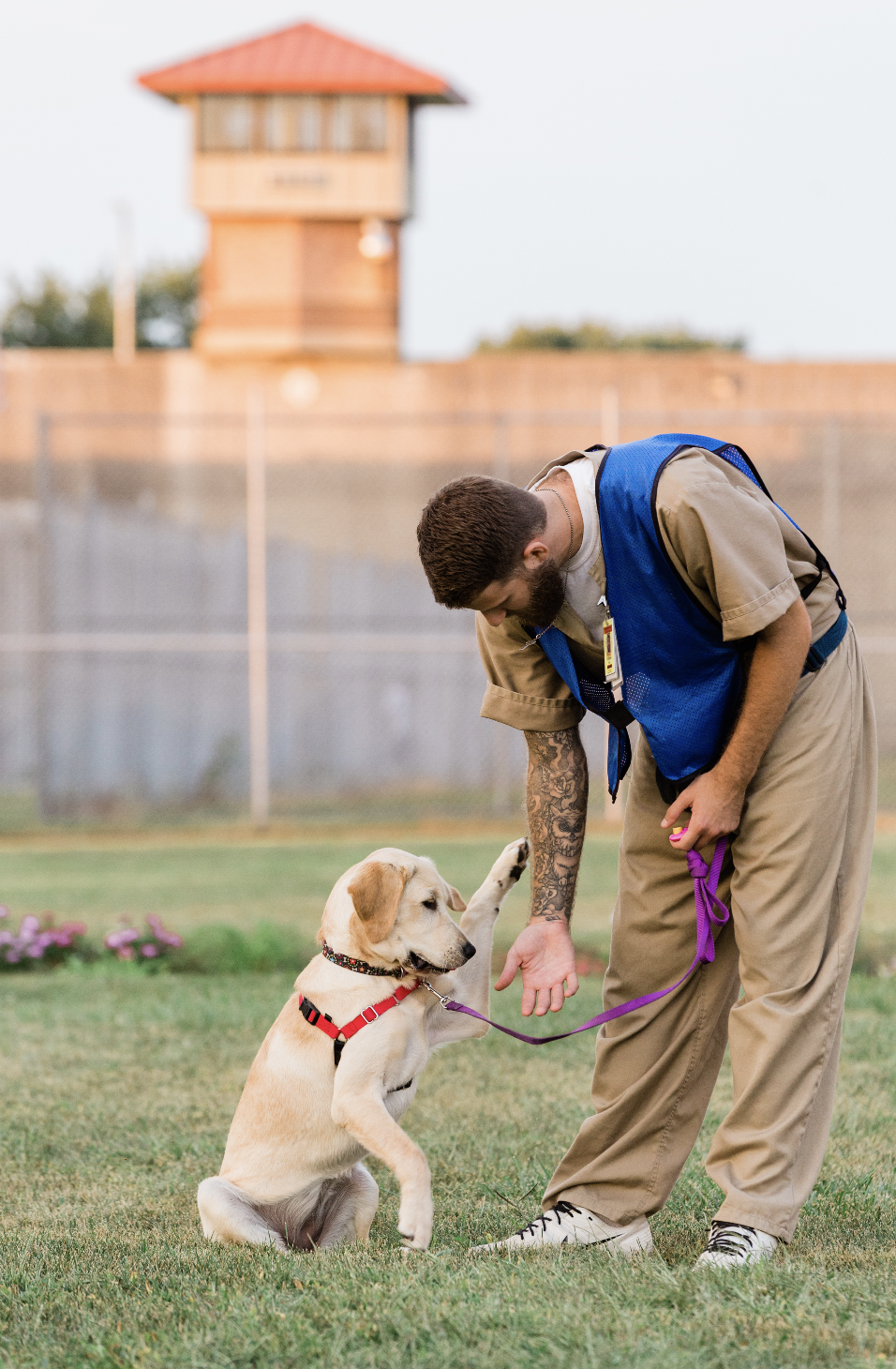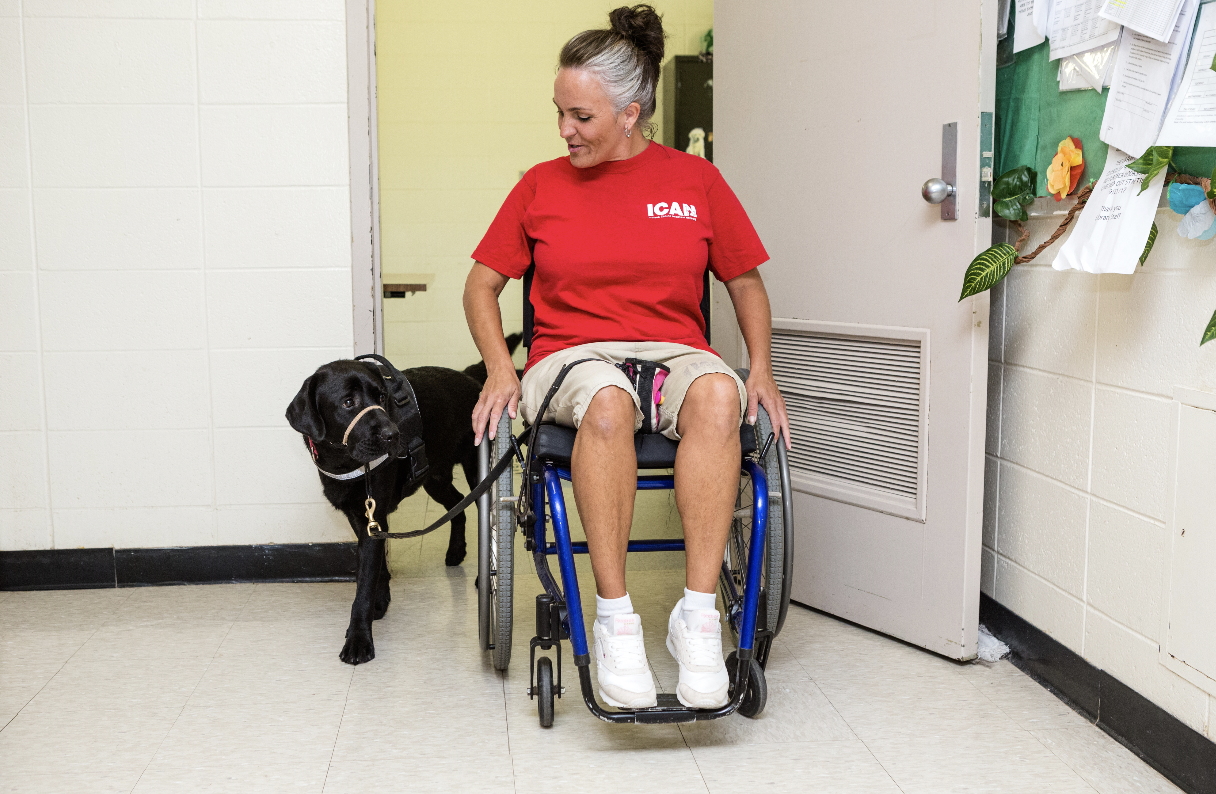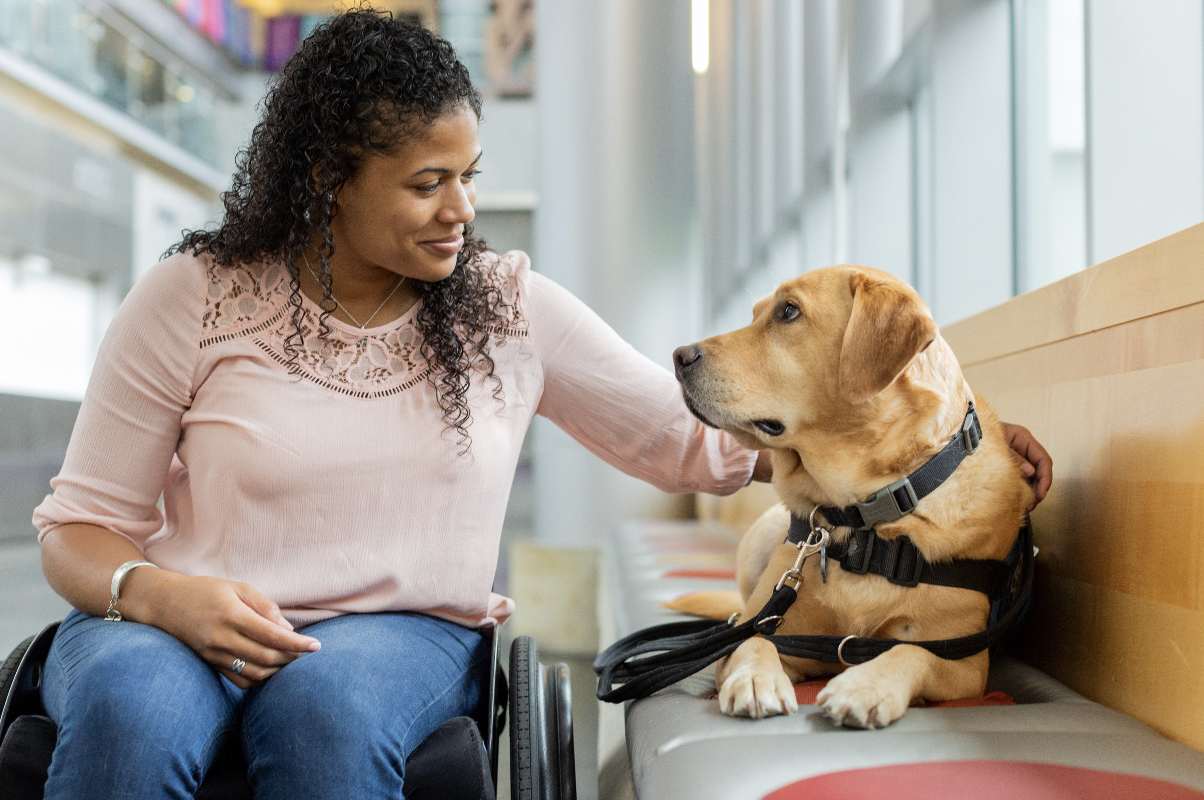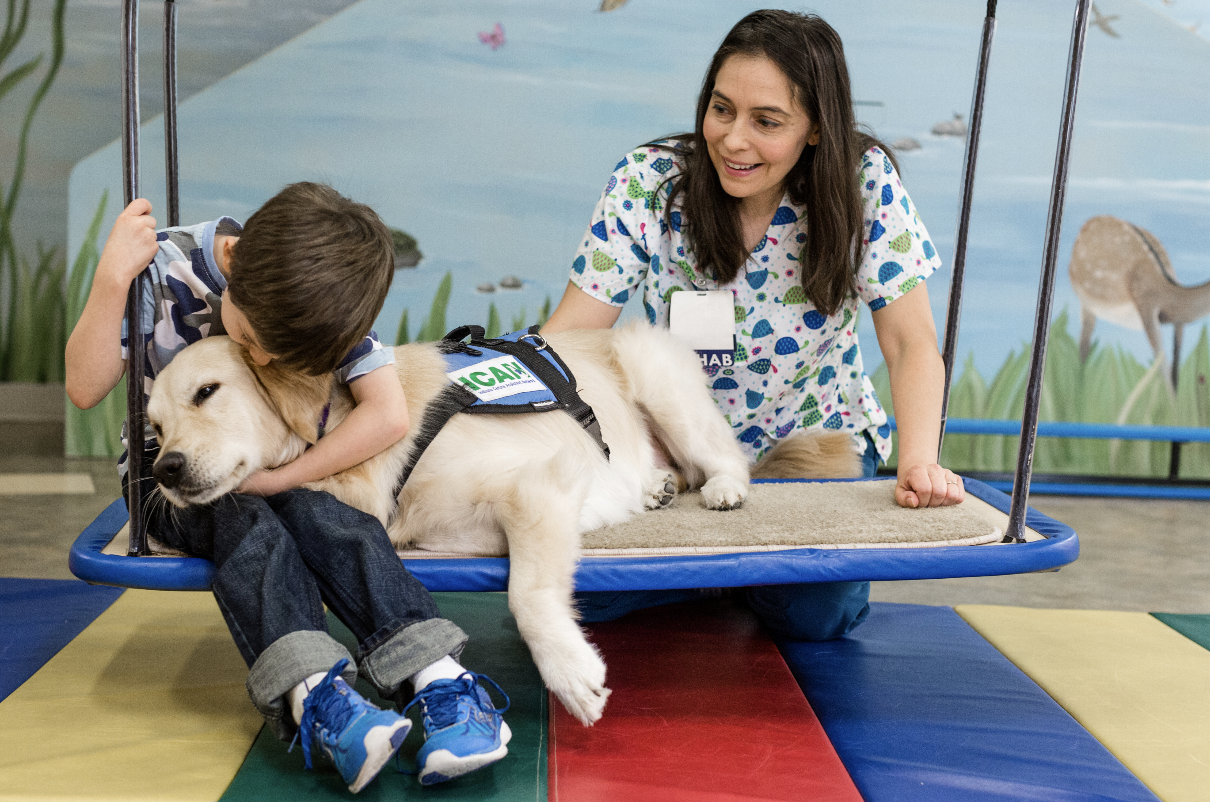ICAN Training Program Changes Lives
Photography Provided by Liz Kaye
Sometimes a dog can make all the difference. No one knows this better than the folks at the Indiana Canine Assistant Network (ICAN). Founded in February of 2002, the statewide nonprofit has helped restore a sense of hope and independence to two groups of people – those with disabilities and those who benefit from having a service dog, as well as the inmates who train the canines. Though the organization also places dogs to help with diabetic and seizure alert, it focuses primarily on mobility assistance.

ICAN typically has about 60 dogs in its program at any given time. They work out of three state prisons – the Indiana Women’s Prison in Indianapolis, the Pendleton Correctional Facility, and the Correctional Industrial Facility at Pendleton.
“We’re a pretty unique program,” says Denise “Dino” Sierp, ICAN’s director of development and outreach. “There are maybe two or three programs in the country where the prison training program has a mission to rehabilitate. It’s not just a job.”
ICAN has eight paid staff members and roughly 200 volunteers who spend their time and energy ensuring that the program is a success. This includes whelpers and litter sitters (people who help the breeder dog and new puppies), as well as puppy raisers, furlough parents, and people who drive the dogs to appointments.
When their beloved family dog passed away in the fall of 2018, Lori Steininger and her husband joined the volunteers at ICAN and furloughed dogs-in-training.
“ICAN is truly a win-win,” Steininger says. “The act of training and caring for these dogs makes such an impact on [prisoners’] mental health and future lives. On the other end of the leash, the client’s life is impacted deeply by a partner that can help that person become independent.”
For the first 16 weeks, the puppies go to a puppy raiser in order to socialize them and expose them to the smells, sounds and sights of the world – “everything from televisions, vacuum cleaners and dishwashers to children, men and people with funny hats,” Sierp says.
This stage helps to prevent any potential issues that can interfere with training down the road. The dogs go to the prison to learn basic and intermediate cues, and after 14 to 15 months, the training transitions to preparing the canines for client-specific tasks such as removing clothes from a dryer, opening doors, and pulling covers up in a bed. Every six weeks the dog goes to furlough volunteers like Steininger, who reinforce the skills the dog has learned in the prison environment. They take the dogs out to parks, grocery stores, ball fields, restaurants – places they can’t go in a prison environment – and report back to the handler about how the dogs fare.

In a non-pandemic year, the program graduates 20 to 22 canines. If they cannot be placed in this manner, ICAN tries to place them in another capacity, such as a police dog or some other kind of public-assistance dog.
As the inmates are engaged in training, they too are learning important life skills such as how to communicate and how to take criticism. Plus, the dogs teach them how to trust, grow confidence and build self-esteem. Above all, the dog, with its unconditional love, teaches forgiveness.
“The dogs heal broken spirits,” says Jillian Ashton, president of ICAN. “It’s a pretty powerful program.”
When the inmate transfers the dog to the client, it’s a magical moment.
“These families’ lives have been changed or altered from what they thought it would be,” Ashton says. “Either their disability or their incarceration made them look at the world in a different way. Both can be very isolating.”
When the two parties come together, suddenly their history doesn’t matter. It’s only about the future and how it now looks brighter.
“Together they find meaning through the conduit of a dog,” Ashton says. “At the end of the day, everyone gains self-worth and independence, and isn’t that what we’re all trying to gain in life? We just want to matter in the world. The dogs help us facilitate that.”
Every year the ICAN hosts the annual Wine & Wags event, their biggest fundraiser. Fundraising is crucial because the cost to train each dog is $25,000.
“That’s a lot of kibble, vet care and training,” says Ashton, noting that ICAN provides lifetime support for their clients. “It doesn’t end when we exchange the leash over to the client.”

The Wine & Wags event, which typically attracts between 550 and 600 people, will be virtual this year on October 8 due to the pandemic. Attendees will still get to hear testimonials from clients, prison inmate handlers, and others who will speak on how ICAN has impacted their lives. This year meteorologists Chuck Lofton and Nicole Misencik will host. Lofton knows firsthand about the impact the ICAN can make, because his wife Mary has one of ICAN’s service dogs.
The organization recently relocated to Zionsville to provide more room for administrative staff, and for training (both two-legged and four-legged) to take place on the grounds.
“It’s doubling our space from where we were,” Ashton says.
Though its offices are located in Zionsville, the ICAN team serves people in Noblesville, Carmel, Fishers, Greenwood, Brownsburg, and throughout central Indiana.
Ashton recalls the time when a mother came into the office several weeks after an ICAN dog had been placed with her child, and she remembers how rested the woman looked.
“I’ve been sleeping for the first time in 17 years,” the mother said. “I know the dog isn’t Lassie and can’t solve all our problems, but it has provided so much peace in our family.”
The ICAN office is located at 5100 Charles Court, Suite 100 in Zionsville. For more info, call 317-672-3860 and visit icandog.org.







Comments 1